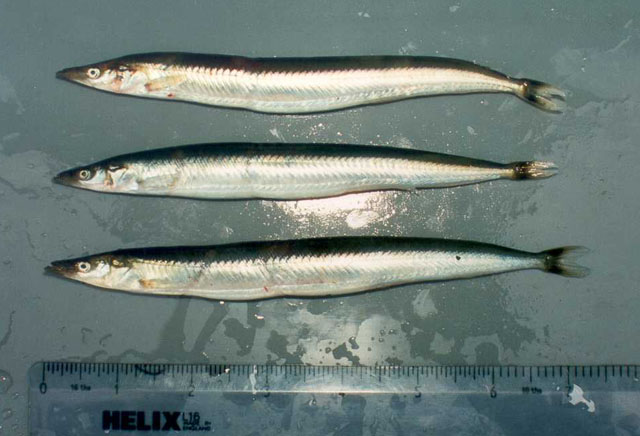| Ammodytidae (Sand lances) |
| 20 cm SL (male/unsexed); max. reported age: 7 years |
|
demersal; depth range 1 - 96 m |
| Northeast Atlantic: Murmansk to Spain, including Iceland and the Baltic (Ref. 4674) and the Mediterranean (Ref. 39911). Two distinct but often sympatric spawning groups exist in the area but have not been given subspecies status although spawning groups differ in mean vertebral number (autumn higher than spring), otolith structure, and probably habitats. |
|
Dorsal spines (total): 0-0; Dorsal soft rays (total): 49-58; Anal soft rays: 24-32; Vertebrae: 60-68. Scales present in the midline anterior to dorsal fin and over the musculature at base of caudal fin. Belly scales in tight chevron. Margins of dorsal and anal fins straight with rays of equal length. Lateral line pores linearly arranged along the un branched canals. Back typically sandy brown. |
| Territorial; found in inshore waters, especially sandy bays and beaches, including the inter-tidal zone and estuaries; rarely offshore. Alternate between lying buried in the sandy substrate and swimming in schools in the water mass. Adults feed on zooplankton and some large diatoms (Ref. 3397). They hibernate in winter buried in sand at depths of 20-50 cm (Ref. 35388). |
|
Data deficient
(Ref. 96402)
|
| harmless |
|
Source and more info: www.fishbase.org. For personal, classroom, and other internal use only. Not for publication.
Page created by Jen, 05.08.02,
php script by kbanasihan 06/09/2010 ,
last modified by
dsantos, 20/08/10

